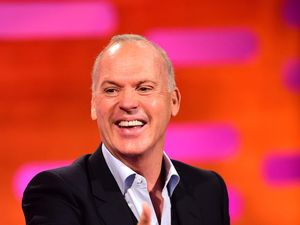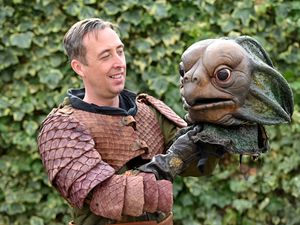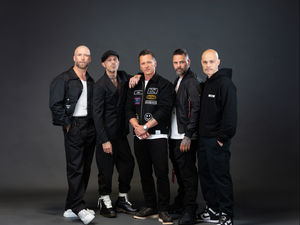BBC removes ‘true story’ description from TV drama Dopesick on iPlayer
It comes after Netflix’s Baby Reindeer came under fire for calling the show a ‘true story’ by a woman who claims to have been depicted by the series.

The BBC has removed the “true story” description of TV drama Dopesick, which explores opioid addiction in America, from the show’s synopsis on iPlayer.
In a note posted on the broadcaster’s Corrections and Clarifications page, the BBC said while the Hulu series is “inspired by actual events”, certain details were “imagined or invented for purposes of dramatisation”.
It comes after Netflix hit Baby Reindeer came under fire for calling the show a “true story” from a woman who claims to have been depicted by the series.
The BBC statement said in the note: “The BBC iPlayer page for Dopesick described the series as a true story.
“Whilst the story is inspired by actual events, certain characters, characterisations, incidents, locations and dialogue were imagined or invented for purposes of dramatisation.
“The programme description has now been amended.”
The description for the eight-part miniseries now reads: “Greed has side effects. A story inspired by the dealers, doctors and the billion dollar drug that fuelled America’s deadly opioid addiction.”
The show, which stars Michael Keaton and Rosario Dawson, first aired on US streaming platform Hulu in 2021.
It later picked up a host of awards including Golden Globes for Keaton and Dawson as well as the lead actor Emmy for a limited or anthology series or movie for Keaton.
Last month, a Netflix boss said the company would be “disappointed” if the true story claim at the beginning of Baby Reindeer detracts from the importance of the series, which touches on issues of sexual assault and stalking.

Created by Scottish comedian Richard Gadd and said to be inspired by his real-life experiences, the drama sees his Donny Dunn hounded by Martha, played by Jessica Gunning, after he serves her a free cup of tea in the pub where he works.
The show made headlines are Fiona Harvey came forward claiming to be the inspiration behind Martha, alleging the story is inaccurate, and filed a lawsuit against Netflix.
At the beginning of the first episode, text appears on the screen which says: “This is a true story.”
When asked about the controversy, vice president of UK content at Netflix Anne Mensah told the Edinburgh TV Festival what is “amazing is that it really touched” people, citing an increase in men ringing hotlines to see help.
She added: “It was important for those reasons, and if you feel it detracted from that I would be absolutely disappointed, but I absolutely stand by all the show.
“It’s drama, not a documentary.”





